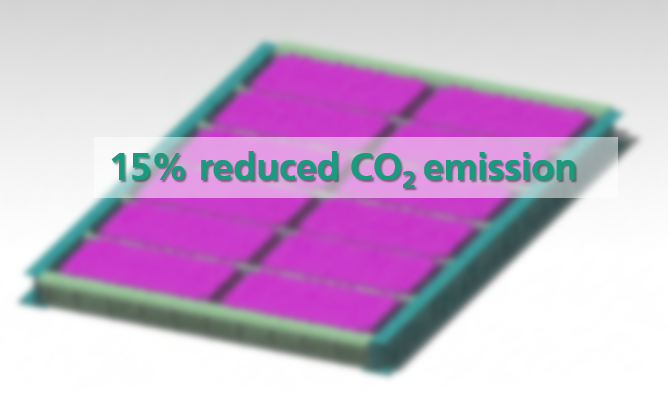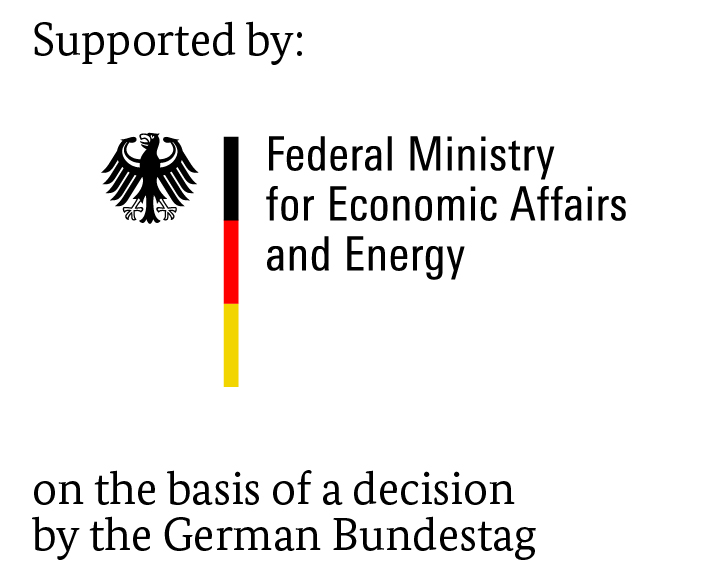CO2-saving lightweight solutions on the next-generation battery housing demonstrator
The increasing environmental awareness of the population requires a constant reduction of CO2 over the entire value chain and over the entire product life cycle in order to achieve future climate targets. Innovative lightweight materials, material combinations, manufacturing technologies and integrated functions can make a significant contribution to achieving these goals and strengthening Germany as a center of innovation.
The project focuses on the development, optimization and scaling of lightweight materials and technologies. In order to bring together the individual developments and evaluate them in terms of resource efficiency and lightweight construction, the battery system of an electric vehicle is chosen as an application example and demonstrator. These battery systems represent a central innovation component of sustainable mobility and are crucial for the competitiveness of electrically powered vehicles Made in Germany.
The very good transferability of the results on the individual lightweight components and the overall system to other industries is a declared goal of the project partners. Life cycle analysis (LCA and LCC) will be carried out throughout the entire development process. Consideration of the results at each stage of the project leads to CO2-reduced material and technology selection and sustainable product performance over the life cycle. Mass savings via new design principles are realized by combining subsystems into functionally integrated structures, such as the integration of cooling lines into load-bearing structures using casting technology or the integration of cooling lines and crash absorption systems in an underbody sandwich structure using energy-absorbing aluminum foam core materials. The use of materials with a high CO2 impact (carbon fiber) is to be minimized through the use of load-path-compatible fiber-plastic composites in the form of towpregs. Mass savings via new materials are achieved by developing geometrically flexible thermal conductive materials with adjustable properties, which replace energetically complex, ecologically highly polluting and cost-intensive thermal conductive pastes. CO2 savings via integral manufacturing processes are targeted through the casting-based production of support structures with integrated fluid conduction structures and the integral production of flat support structures with crash intrusion protection function.
By reducing the number of individual systems in conjunction with integral manufacturing processes, cost- and mass-intensive interfaces and the number of energy-intensive joining technologies can be reduced. As a consequence, energy can be saved in the manufacturing and assembly process and CO2 emissions can be reduced by lowering the total mass during the use phase. In addition, lignin-based intumescent foams will be investigated to realize fire protection. The demonstration of the functionality of developed materials and the feasibility of designed processes will be carried out by means of a demonstrator in order to strengthen the visibility for the research results as well as acceptance and confidence among users.
Main focuses of the project:
- CO2-balancing, LCA and LCC for materials, technologies and systems
- Development of inner support structures with integrated temperature control channels
- Development of functionally integrated outer load-bearing structures
- Development of sustainable fire protection materials
- Development of load path optimized covers
- Demonstrator development with proof of CO2-reduction
Project duration: 01.05.2021 - 30.04.2024
Project partners: Auto-Entwicklungsring Sachsen GmbH (AES); Basdorf, Lampe und Partner GmbH (BLP); Compositence; INVENT GmbH; iPoint-systems GmbH; LXT Group GmbH; MID solutions; Synthopol; Tigres; TRIMET Aliminium SE; Daimler AG
 Fraunhofer Project Center Wolfsburg
Fraunhofer Project Center Wolfsburg
